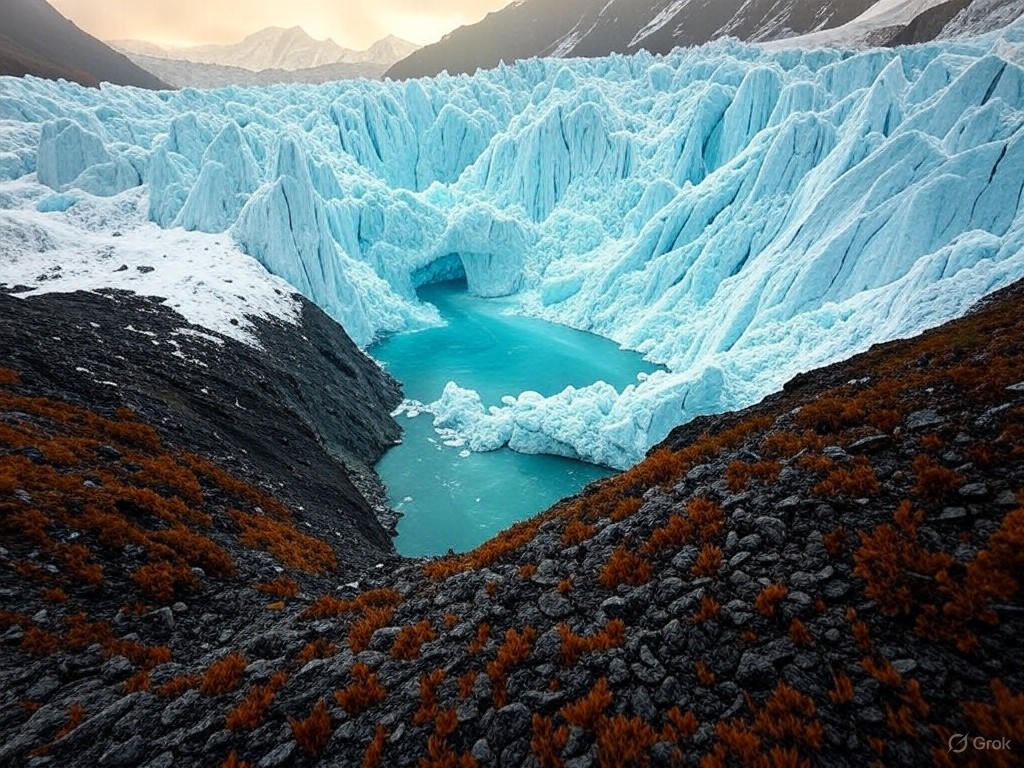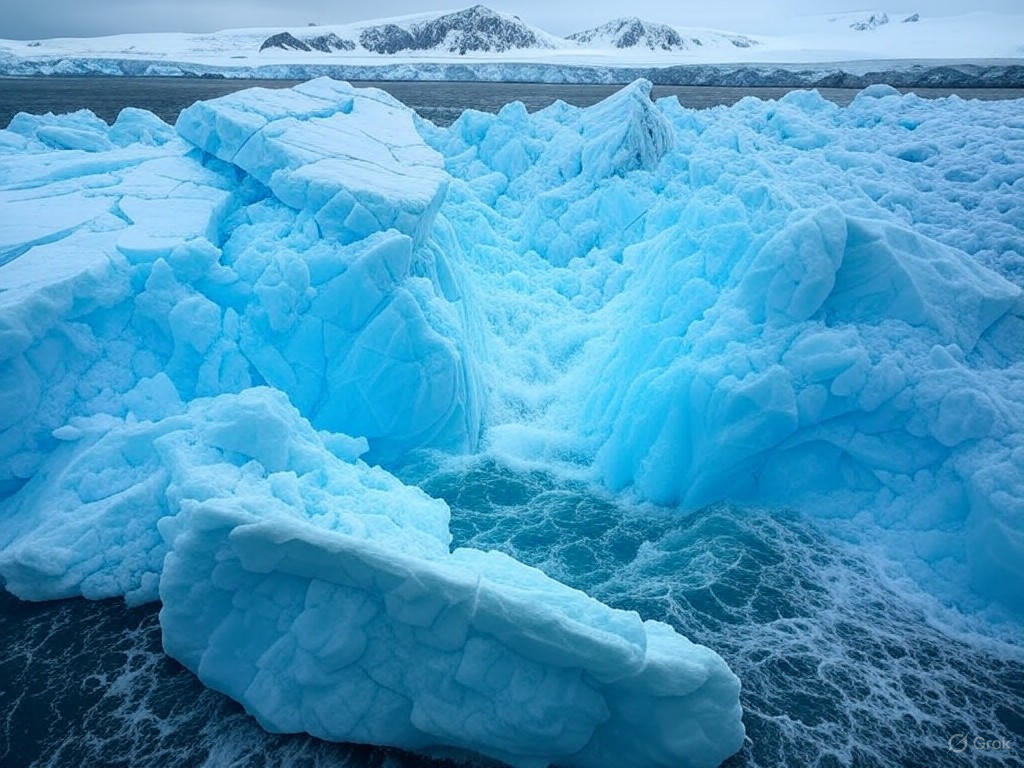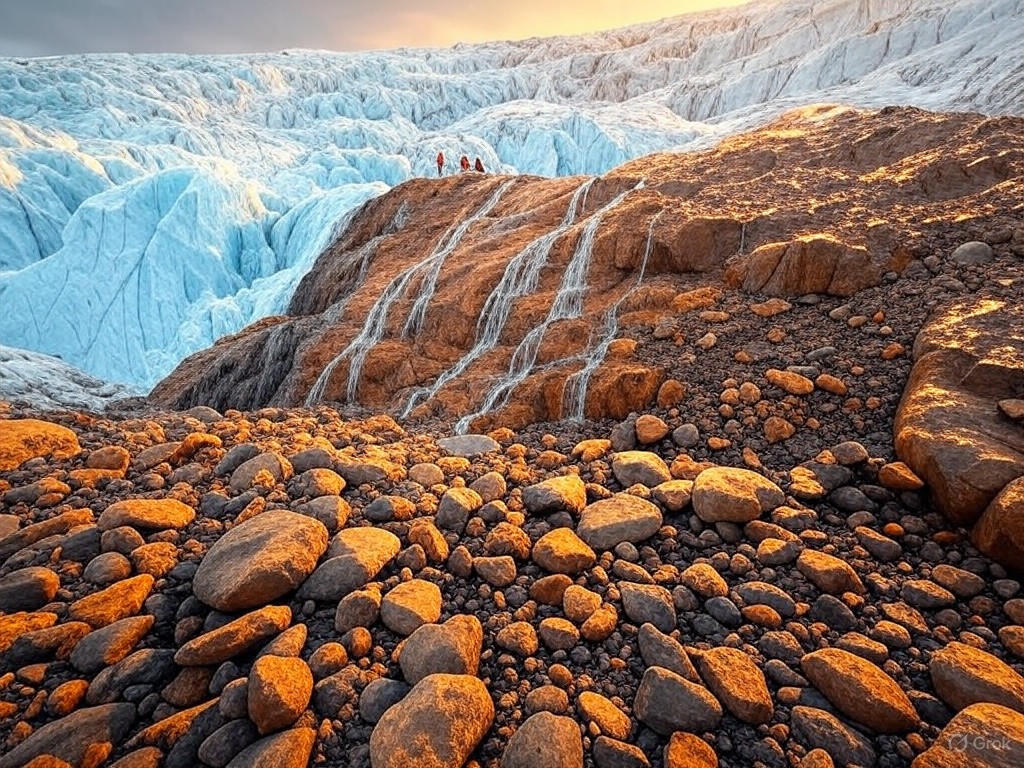Glacier Retreat Studies: Climate Warning Signs
Hilltops Newspaper
In an era where the natural world whispers urgent truths, the steady retreat of the world's glaciers stands as a stark reminder of humanity's intertwined fate with the environment. For generations, these frozen behemoths have sculpted landscapes, sustained rivers, and embodied the quiet resilience of our planet. Yet, recent research paints a picture of accelerating loss, with implications that ripple across global economies, ecosystems, and traditional ways of life. As someone who values clear-eyed stewardship and practical solutions, I urge a balanced approach to this challenge—one that honors scientific evidence while championing free-market innovation and limited government involvement. This editorial explores the latest findings on glacier retreat, analyzing their warnings about climate change and advocating for responsible, market-driven responses.
Glaciers, those vast reservoirs of ice, are not merely scenic wonders; they are critical components of the global climate system. Research from institutions like NASA has documented their rapid diminishment, linking it directly to rising temperatures driven by human activity (NASA's Vital Signs of the Planet). Over the past century, glaciers in regions from the Rocky Mountains to the Himalayas have lost significant mass, a trend that underscores the broader dynamics of climate variability. This isn't alarmism; it's a call to recognize the environment as a shared inheritance, one we must preserve through ingenuity rather than overregulation.
The Science of Retreat: A Closer Look at the Evidence
To understand the scope of glacier retreat, we must first examine the research that has illuminated its causes and consequences. Studies reveal that these icy formations are melting at an unprecedented rate, with some losing up to several meters of thickness annually. For instance, investigations into the Greenland Ice Sheet show that meltwater runoff has accelerated, contributing to global sea-level rise and altering ocean currents (Intergovernmental Panel on Climate Change, IPCC). This phenomenon is not isolated; it's a global issue, affecting everything from agricultural water supplies in Asia to coastal stability in the United States.

This satellite image captures the stark contrast of a Himalayan glacier in 2023 compared to 2000, illustrating the rapid loss of ice that threatens downstream water sources for millions.
The evidence is compelling and multifaceted. A 2022 analysis by the World Glacier Monitoring Service highlighted that between 2010 and 2020, global glacier mass loss averaged 267 gigatons per year, driven primarily by increased atmospheric temperatures (World Glacier Monitoring Service). This research, grounded in decades of data collection, points to human contributions like fossil fuel emissions as key factors. Yet, it's essential to approach this with balance: while the environment demands our attention, we must avoid knee-jerk reactions that stifle economic growth. Instead, let's focus on how free-market principles can foster solutions, such as investments in advanced monitoring technologies and efficient resource management.
Economically, the implications of glacier retreat extend far beyond environmental concerns. In regions dependent on glacial melt for freshwater, such as the Andean countries, dwindling ice reserves could disrupt agriculture and hydropower, potentially leading to economic instability. A report in the Wall Street Journal detailed how private enterprises are stepping in with innovative adaptations, like precision irrigation systems that conserve water without relying on expansive government subsidies (Wall Street Journal on Climate Adaptation). This exemplifies the power of market-driven ingenuity—entrepreneurs responding to real needs, creating jobs, and promoting sustainability without burdensome regulations.
Analyzing the Warnings: Balancing Urgency with Practicality
As we delve deeper into the analysis, it's clear that glacier retreat serves as a bellwether for broader climate shifts. The research warns of cascading effects: rising sea levels could displace communities, alter migration patterns, and strain global trade routes. Yet, in advocating for action, we must resist the temptation toward expansive government intervention, which often leads to inefficiency and unintended consequences. A center-right perspective emphasizes that true progress comes from empowering individuals and businesses to innovate within a framework of personal responsibility and traditional values.
Consider the role of technology in this narrative. Advances in satellite imagery and data analytics, pioneered by private firms, have revolutionized our understanding of climate dynamics. For example, companies like those in the aerospace sector are developing affordable sensors to track glacier health, enabling proactive measures without the need for top-down mandates (IEEE Spectrum on Climate Tech). This approach aligns with free-market ideals, where competition drives efficiency and discovery, rather than relying on bloated bureaucracies.

This dramatic photo from a research expedition depicts a massive ice shelf in Antarctica fracturing, symbolizing the urgent need for adaptive strategies in the face of environmental change.
Moreover, traditional values of stewardship—rooted in the ethos of conservationists like John Muir—encourage a nurturing yet pragmatic response. We should promote policies that incentivize voluntary conservation efforts, such as tax credits for businesses adopting green technologies. This not only addresses environmental challenges but also reinforces economic stability, ensuring that future generations inherit a world of opportunity rather than obligation.
A Path Forward: Embracing Innovation and Responsibility
In conclusion, the research on glacier retreat offers critical warnings about global climate change, urging us to act with both urgency and wisdom. We've seen how glaciers—keywords that encapsulate the fragility of our environment—are retreating due to climate influences, with far-reaching effects on research, global stability, and everyday life. Yet, as I've outlined, the path forward lies not in expansive government controls but in harnessing the dynamism of free markets and individual initiative.

